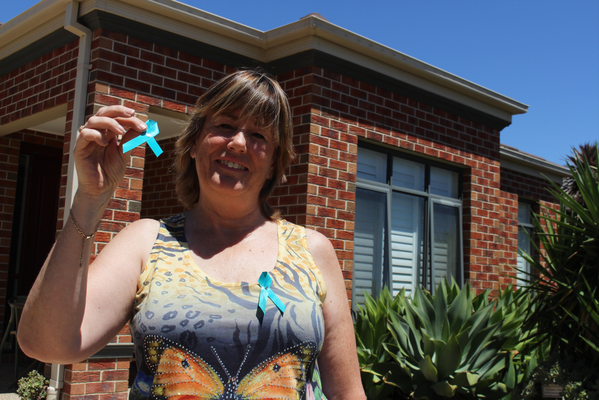
By Rowan Forster
When Claire Latham stressed to her GP that she had the tell-tale signs of a serious illness, she was prescribed tablets for constipation and told to rest up.
Just months later, in mid-2017, clinicians informed her that she had late-stage ovarian cancer which had spread to her lungs.
The Pakenham mother subsequently wrestled the heinous disease in a fight for her life – emerging triumphant to tell the tale.
After months of gruelling chemotherapy treatments, she was given the all-clear.
With February marking ovarian cancer awareness month, Ms Latham is hoping her inspirational journey will serve as a wake-up call for young women.
She suspects that if she had not been persistent following a series of misdiagnoses, she may not have survived the ordeal.
“You have to keep an eye on yourself and if you think you’re unwell, go to a doctor and get yourself checked out,” she said.
“If you don’t think you’re being taken seriously, go to someone else and don’t give up.
“I am so lucky because a lot of women don’t get through it, and for many others it can re-occur.”
For two weeks, even the hospital Ms Latham attended was unsure what the illness was.
When her stomach filled with fluid, she experienced unbearable abdominal pain and demanded doctors undertake further tests.
“A lot of women don’t know they’ve got it until it is too late.”
She said it was the birth of her first grandchild that helped get her through treatment.
With the lowest survival rate of any women’s cancer and little improvement in treatment in nearly 50 years, Australians are being encouraged to take ovary-action during February’s Ovarian Cancer Awareness Month.
Every year in Australia, more than 1,600 women are diagnosed with ovarian cancer and more than 1,000 will die.
Only 45 per cent of women diagnosed with ovarian cancer will survive five years post diagnosis.
Jane Hill, CEO of Ovarian Cancer Australia, said that three Australian women die of ovarian cancer every day.
“Each day, four Australian women are diagnosed with ovarian cancer and three will die – that’s almost 100 women every month,” Ms Hill said.
“If found in its early stages, women have an 80 per cent chance of being alive and well after five years.
“Unfortunately, 75 per cent of women are diagnosed in advanced stages.”
Symptoms can include abdominal or pelvic pain, increased abdominal size or persistent abdominal bloating, the need to urinate often or urgently and feeling full after eating only a small amount.






